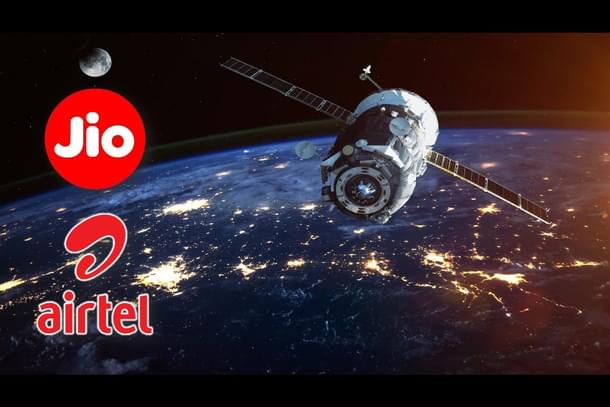News Brief
Modi Government Says No To Satellite Internet Auction Against Indian Telcos Wishes, Set To Allocate Spectrum Administratively
Vansh Gupta
Nov 28, 2024, 02:06 PM | Updated 02:06 PM IST
Save & read from anywhere!
Bookmark stories for easy access on any device or the Swarajya app.


The government reaffirmed on Wednesday (27 November) that spectrum allocation for certain satellite-based communication services will be carried out administratively, bypassing auctions, albeit subject to a fee.
Minister of State for Communications, Pemmasani Chandra Sekhar, clarified in a written response to the Lok Sabha that the new Telecommunications Act could accommodate exceptions under specific circumstances.
These exceptions would apply in scenarios where spectrum allocation serves the public interest, facilitates government functions, or where technical and economic considerations render auctions unsuitable.
To streamline the process, the Department of Telecommunications (DoT) has sought recommendations from the Telecom Regulatory Authority of India (TRAI) on the terms and conditions for spectrum allocation.
These recommendations will encompass pricing mechanisms and provisions for satellite communication (satcom) operators, ensuring parity with terrestrial telecom services. "TRAI is yet to provide their recommendations to DoT," the minister noted.
This clarification emerges amidst an intense debate between global satellite players and Indian telecom operators over the modalities of satellite spectrum allocation and pricing, especially for broadband-from-space services.
Industry heavyweights like Elon Musk's Starlink and Jeff Bezos-led Amazon Kuiper are pitted against India's major telecom players, Reliance Jio, Bharti Airtel, and Vodafone Idea (Vi).
Indian telcos have emphasised the need for a uniform regulatory framework, advocating for auction-based allocation of satellite spectrum for urban and retail applications.
Their contention is that satellite providers, particularly Starlink and Amazon Kuiper, aim to penetrate urban broadband markets, thereby creating direct competition with terrestrial telecom services.
Conversely, satellite companies argue that satcom airwaves are inherently a shared resource, unsuitable for auctions, and should be allocated administratively to enable broader access and affordability.
TRAI’s recommendations, expected in December, will be pivotal in determining the pricing and methodology for allocation. Only two entities—Bharti-backed Eutelsat OneWeb and a Reliance Jio-SES partnership—currently hold statutory approvals and permits to commence satcom services. Meanwhile, applications from Starlink, Amazon Kuiper, and US-based Globalstar remain under review.
India's space sector regulator, IN-SPACe estimates that the country's space economy has the potential to hit $44 billion by 2033, and account for about 8 per cent of the global share, up from about 2 per cent currently.
Also Read: India's New Stealth Cloak: IIT-Kanpur Develops Radar-Evading 'Anālakṣhya' System
Vansh Gupta is an Editorial Associate at Swarajya.





